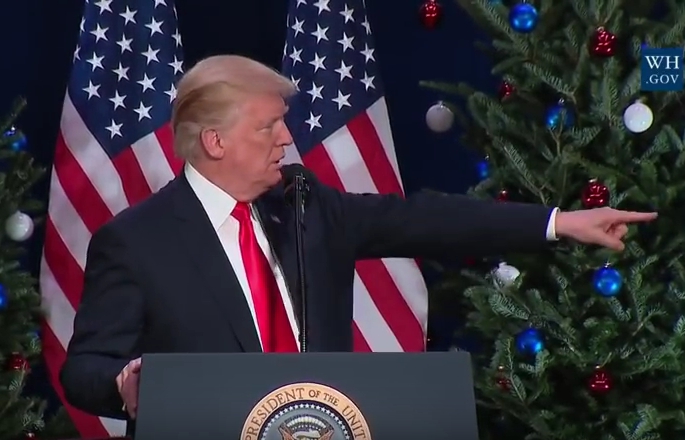After passing 51-49 in the Senate Trump’s tax reform is one step further towards becoming a reality, which is expected to provide a moderate boost to US growth.
According to a survey of 51 analysts conducted by the National Association of Business Economics, around half of economists expect that changes in fiscal policy will increase the growth of the world’s leading economy by between 0.28 and 0.39 percentage points next year.
“We believe that the success of a package of fiscal measures will probably be accompanied by a slight rise in prices in the short term, of a magnitude practically similar to the setback that would result from a legislative failure,” explained Mark Burgess, Deputy Global Chief Investment Officer at Columbia Threadneedle Investments.
Small caps, consumption and finance
In general, the impact is expected to be limited, but small caps, consumer-related stocks and financial securities will be the most benefited according to Patrik Lang, Head Equity Research at Julius Baer.
“The final result will still be subject to some changes, but now it seems increasingly likely that the tax reform will take effect in the coming weeks. We maintain our opinion that the direct impact on the S&P 500 will be limited, while small caps and the consumer and finance sectors will be the most favored by the reform”.
Equities
For Peter Garnry, Head of Equity Strategy at Saxo Bank, the tax rebates will especially benefit companies with a more national orientation, as it will be positive in terms of cash flow available after taxes. With the corporate tax rate decreasing from 35% to 20%, net operating profits will increase by 20% nationwide.
“Among the sectors that are being targeted by the US tax reform is the technological sector, since a repatriation tax of 12% could be imposed. This tax would encourage companies with money abroad to return to the US. It is estimated that around $2.5 trillion in cash are abroad and that around 50% of this money would go back home and be used for the repurchase of shares,” he estimates.
High yield debt market
The tax rates high yield debt issuers pay in the United States are, on average, 28%, recalls SKY Harbor Capital Management, so with everything else equal, the proposed tax cuts will modestly improve the free cash flow for issuers.
In addition, they explain, the issuers of lower rating and with greater leverage will be negatively affected by the reform, since a reduced tax shield will offset the benefits of a reduced tax rate. And on the other hand, issuers of higher quality and investment grade will be te ones that benefit the most of repatriation.
For the firm, sectors with high average tax rates, high interest coverage rates and capital intensive operating models should be the main beneficiaries of the tax reform.
Gold waiting for political events
The tax reform should have a more lasting impact on the gold market, since it is likely to reactivate optimism regarding a higher growth rate in the United States, support the idea of rate increases and encourage a rebound of the US dollar.
“The sustainable rise in gold should materialize once growth concerns creep into the financial markets and reactivate investor demand for gold as a safe haven,” says Carsten Menke, Commodity Analyst at Julius Baer.

